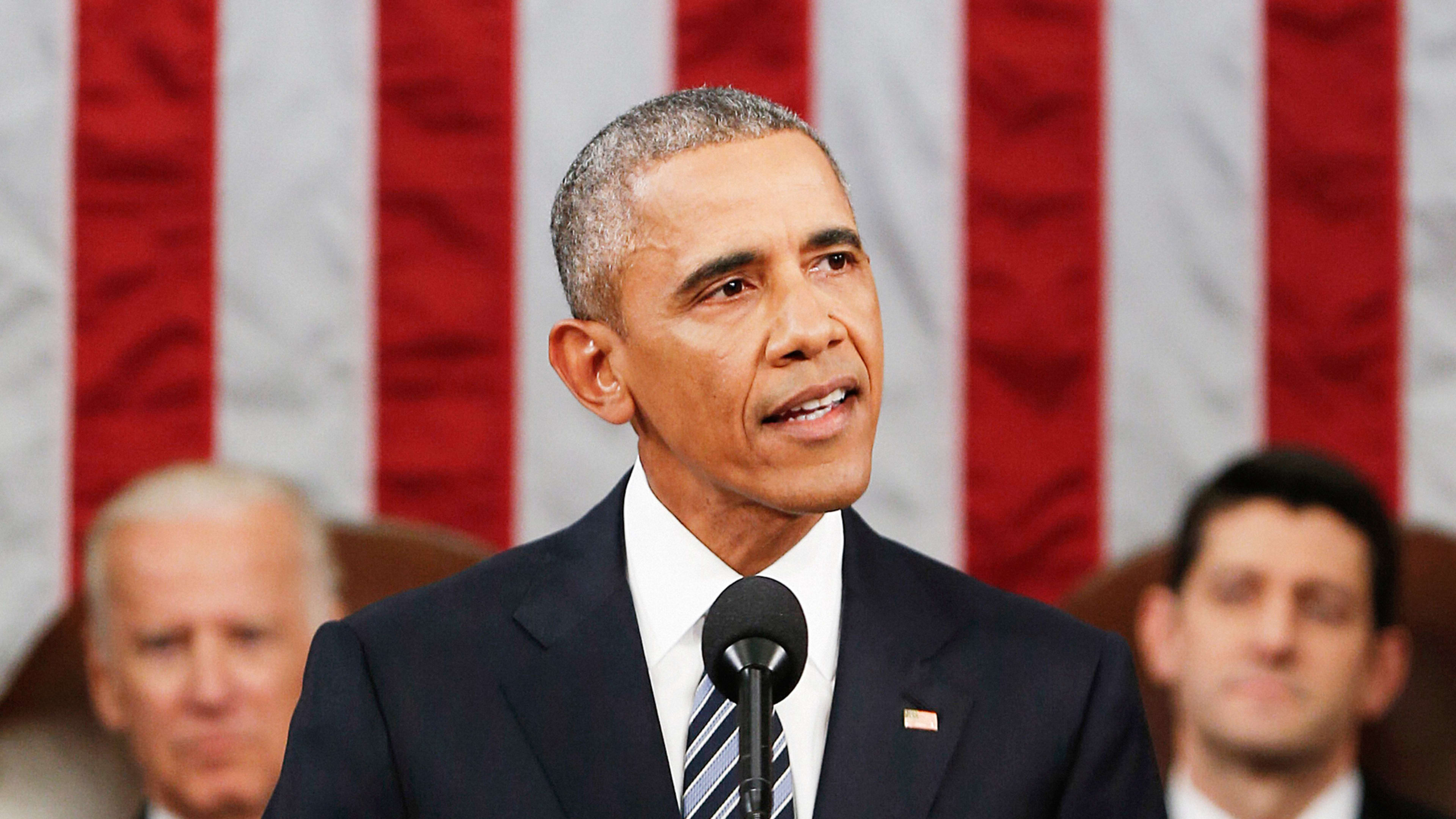President Obama got some of his old oratorial flair and political grit back tonight during his final State of the Union address, determined to establish his own legacy, and painting the GOP as the “fear party.”
The president reminded America of some of his biggest accomplishments, describing how they have helped improve the state of the union since he took office in 2009.
More than anything else, though, Obama repeatedly hammered home what he sees as the biggest difference between his party and the Republicans–that even during scary times, Democrats work on policies that grow from a sense of hope rather than fear and hatred.
“America has been through big changes before — wars and depression, the influx of immigrants, workers fighting for a fair deal, and movements to expand civil rights. Each time, there have been those who told us to fear the future; who claimed we could slam the brakes on change, promising to restore past glory if we just got some group or idea that was threatening America under control. And each time, we overcame those fears.”
Later in the speech, he reiterated that change will come from a hopeful worldview, not just switching individual lawmakers: “If we want a better politics, it’s not enough to just change a congressman or a senator or even a president; we have to change the system to reflect our better selves.”
The theme is Obama’s own spin on a classic Democratic principle: the idea that people are basically good, and that given a chance–and a little assistance when needed–they will stand up, work, and try to better themselves.
And, of course, the focus on hope is the president’s oratorial sweet spot, as we remember from the inspiring speeches during his first presidential campaign.
In the middle of an election season where the GOP candidates seem to be getting all the attention, Obama suggests people like Donald Trump and Ted Cruz are appealing to voters’ anxiety and animosity in a cynical ploy to get votes.
The GOP candidates’ favorite talking points center on Americans’ fears: that Islamic fundamentalist groups might do us harm at home; that illegal immigrants might take American jobs; that the middle class is disappearing; that the system has been bought and that votes don’t matter; that most people, if given the opportunity, will take a welfare check and neglect going to work.
Examples aren’t hard to find. Trump’s numbers rose in some polls after his suggestion that the U.S. close its borders to immigrants (until it figures out a strategy). “The first thing I’d do in my first day as president is close up our borders so that illegal immigrants cannot come into our country,” Trump said in a Twitter question and answer session in 2015.
Ted Cruz said during a stump speech that the U.S. should “carpet bomb” Islamic militants, and find out whether “sand can glow in the dark.”
Those ideas may play well with the GOP base (and reflect those voters’ temperaments), but ideas formed in anger don’t make good policy, emphasized Obama, who mocked the Republicans by saying that the U.S. response to foreign crises “needs to be more than tough talk or calls to carpet bomb civilians. That may work as a TV sound bite, but it doesn’t pass muster on the world stage.”
And there are long-term consequences to such rhetoric, Mr. Obama suggests, like the world becoming a far more scarier place.
“As frustration grows, there will be voices urging us to fall back into tribes, to scapegoat fellow citizens who don’t look like us, or pray like us, or vote like we do, or share the same background. We can’t afford to go down that path. It won’t deliver the economy we want, or the security we want, but most of all, it contradicts everything that makes us the envy of the world.”
Obama used his State of the Union address to remind America of the big picture of his presidency. He reminded Americans of the financial crisis taking place when came into office. In the face of an obstructionist GOP and Congress, the president said, his administration was able to lower the unemployment rate and increase the number of American with health insurance. He pointed to the potential success of the Iran nuclear deal, which Republicans have painted as a failure.
It’s about his legacy, a topic Obama has only now begun to think about. Many pundits have said that President Obama has allowed his outspoken GOP opponents to control the narrative about the value and effectiveness of his presidency.
Tonight he got his chance and he used it well.
And it matters a lot that he did it now, with 10 months to go until the country picks a new president. The numbers show that the party of a highly regarded outgoing president has a very good chance of retaining the presidency—but only if enough Americans go to the polls.: “So, my fellow Americans, whatever you may believe, whether you prefer one party or no party, our collective future depends on your willingness to uphold your obligations as a citizen. To vote. To speak out.”
Obama’s speech tonight might make Hillary Clinton’s and Bernie Sanders’ messages sound better to many voters in the coming months–maybe even a few Republicans.
Recognize your brand’s excellence by applying to this year’s Brands That Matter Awards before the early-rate deadline, May 3.
